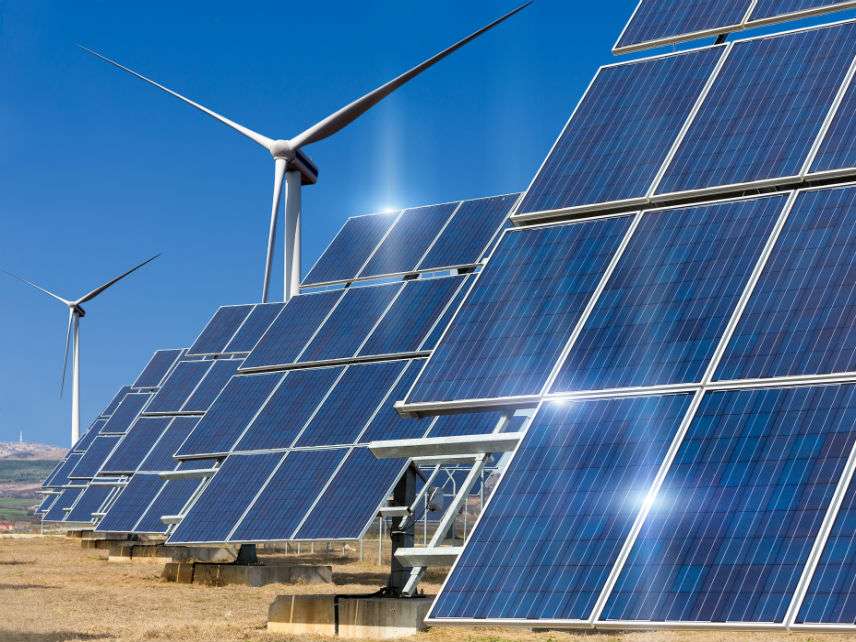Climate Activist Bill McKibben's 3-Step Plan to Eliminate Fossil Fuels
If renewables are as cheap as he thinks, then Steps 2 and 3 are superfluous.

Climate activist Bill McKibben has proposed a 3-step strategy for getting to a fossil-fuel-free America. In Step 1, activists to push for "a fast and just transition to renewable energy in cities and states." According to McKibben, "With each passing month, the technology that powers renewable energy gets cheaper and cheaper. It's already generating massive quantities of electrons at prices cheaper than any other technology has ever managed in the past. A recent report by the International Renewable Energy Agency (IRENA) reports that renewables will be consistently cheaper than fossil fuels by 2020."
McKibben's Step 2 involves efforts to stop new fossil fuel projects, and Step 3 urges fellow activists to demand that investors cut off the flow of money to the fossil fuel industry. He doesn't seem to recognize that if he's right about Step 1, that means Steps 2 and 3 will be superfluous. If renewable power systems become cheaper than coal, oil, and natural gas, they will outcompete coal, oil, and natural gas. That in itself should cut off the flow of investment dollars to new fossil fuel projects.
The IRENA report projects that over the next two years, prices for power from onshore wind and solar photovoltaic projects could be as low as three cents per kilowatt-hour. The investment consultancy Lazard's latest levelized cost of energy analysis finds that the per-kilowatt-hour prices of unsubsidized wind and solar power and energy storage in the U.S. is already within the range of all fossil fuel systems except natural gas combined cycle power.
A new study by MIT researchers finds that a greenhouse gas emissions pathway that reduces anthropogenic carbon dioxide emissions by two-thirds by 2050 could keep global average temperatures from rising 2 degrees Celsius above the pre-industrial level. Moreover, there are reasons to think that a relatively speedy transition from fossil fuels to renewables and nuclear is possible, so there is likely enough time to keep the planet overheating.
If McKibben and the analysts at IRENA and Lazard are right, then markets are already well on the way toward addressing the problems associated with man-made global warming.
Disclosure: McKibben very kindly blurbed my book Liberation Biology.


Show Comments (171)